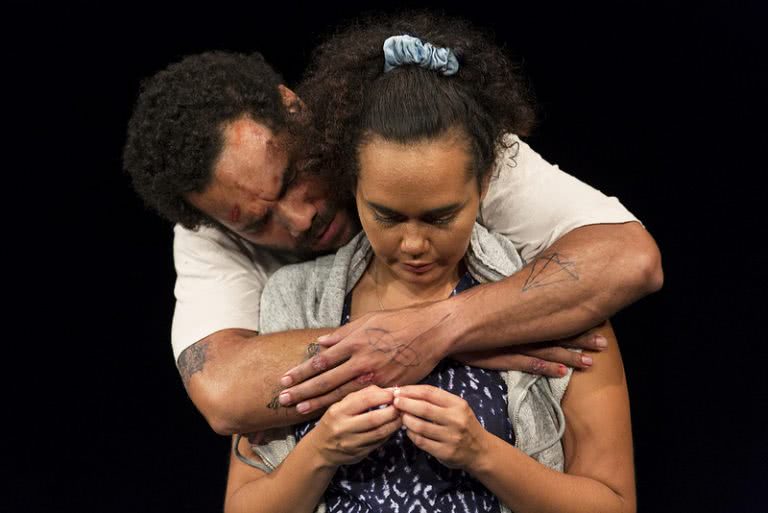Kill The Messenger intends to ask questions – of itself, of its story and of its audience.
Nakkiah Lui performs as herself, as well as being the play’s writer, and is on a personal journey for answers. Why do audiences come to see plays about the suffering of native people? Why is racism still systemic in our organisations? What do we want from her? Why did we even buy tickets for this?
Part emotive TED-style talk, part reenactment and part fiction, Lui tells of the deaths of two indigenous people: Paul, a recovering drug addict who was refused care at an emergency ward only to then hang himself; and Lui’s own grandmother, whose termite-ridden, housing commission home floor caved in, killing her. The common thread of these people’s stories is the apathy of the systems that should be protecting them, or at least offering basic services to all in need.
Lui places herself central to the story as its antihero, analysing and tracing small injustices back over and over until she gets to Captain Cook himself. She creates scenarios in which she imagines meeting Paul in a fictional world, and shows a strained relationship with an on-again-off-again white boyfriend who can never truly know her experiences. She realises her stories aren’t unique, but are mere examples of a wider problem, and points to everyone as complicit.
She is acutely aware of the irony in presenting this show to a largely white audience, who’ll then pat themselves on the back for being part of the solution but not really do much else. She knows there are no quick answers, and opts instead to leave the audience asking more questions than when they arrived. While promo for the show pinning Lui as “Mount Druitt’s answer to Lena Dunham” might be more than a bit rich, or even reductive, it’s a wickedly funny and poignant presentation of the ongoing blind-eye of contemporary Australia, and it puts the onus firmly on all of us to fix it.
3.5/5 stars
Kill The Messenger is playing at Belvoir Street Theatre until Sunday March 8.


































